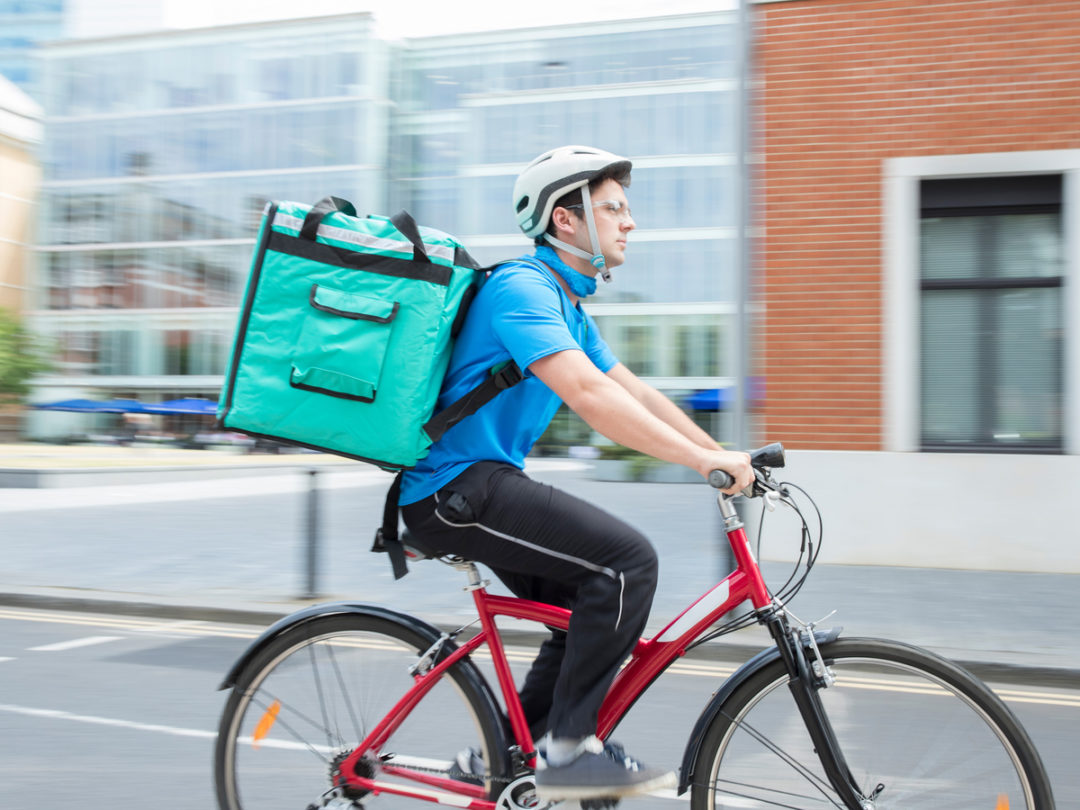
Nobody predicted the size and scale of the COVID-19 pandemic, or the wide-ranging effects that the lockdown would have. Its sudden arrival has presented innumerable challenges to governments, businesses, and the general public. At the same time, it has created a number of opportunities for those businesses savvy enough to spot them.
A key example is door-to-door delivery. Organizations that didn’t previously offer it have had to quickly adapt, and those that already had operations in place have had to manage overwhelming increases in order volumes from frantic customers. This has presented a whole new set of challenges.
When even everyday tasks such as walking down the street to shops are off the table, it means businesses need to get creative to reach customers, or risk having their trade taken by any competition that reacts more quickly.
Online retail and home deliveries have quickly become the favored solution, with e-commerce booming in the weeks and months since the announcement of social-distancing measures.
Demand is growing across all demographics, with the over-60 market representing the sharpest increase, as old shopping habits are replaced by modern technological alternatives out of necessity.
The challenge for retailers is to scale up quickly in a way that doesn’t hurt margins, puts the safety of employees at risk, or negatively affects customer service.
Growing too quickly can cause exponential problems, resulting in delivery delays, an inability to take new orders, inefficient inventory management, overworked drivers, and disappointed customers. This calls for an effective logistics strategy that is driven by advanced technology to support rapid scaling, on-the-fly changes, and the ability to handle disruptions.
One of the most popular and effective solutions to these problems is crowdsourced logistics, particularly the software that makes it possible.
The right tools can enable businesses to bypass all the usual channels to quickly recruit temporary or part-time delivery drivers, hiring only who they need and when they need them. Users can tap into a wealth of data, including productivity, fuel consumption, cost, proximity and more to find the right match.
The idea is similar to a ride-sharing app, but it’s goods that are being transported instead of people.
These systems also handle routine tasks such as driver registration and assessment. Not only is it a quick way to add to your team; it means that all crucial information is held in one centralized setup, which also makes it easier to benchmark against key performance indicators and engage in future decision-making.
The right software will also manage rosters, monitor driver location and progress, schedule breaks, and design the most efficient routes possible.
Using real-time data to make dynamic decisions, the technology results in increased productivity, lower operating costs, and highly accurate predictions of delivery time.
Making contactless deliveries is the safest choice for both drivers and customers. Contactless payment might not be a new idea, but it’s never been so strongly associated with last-mile delivery. Now retailers are giving customers the option to make contactless, or tap-and-go, payments that eliminate the need for cash transactions.
Contactless deliveries are relatively new for the home delivery industry, but have become an essential way of navigating social-distancing complications. It means leaving a delivery at the customer’s doorstep, often without even ringing a bell or knocking.
Digital online delivery tools allow drivers to keep the order at a customer’s doorstep or other pre-agreed spots, take a photograph, and send it to the customer to inform them that the delivery is done.
As lockdown periods are extended further, businesses can expect a further surge in demand for home deliveries. Following best-practice advice will not only ensure business sustainability during the current uncertain times, but will also prepare enterprises for the new way of doing business. Making the right decision now will lead to improved internal operations, and boost the customer experience as well.
Kushal Nahata is CEO of FarEye, a logistics software-as-a-service platform for predictive visibility.







